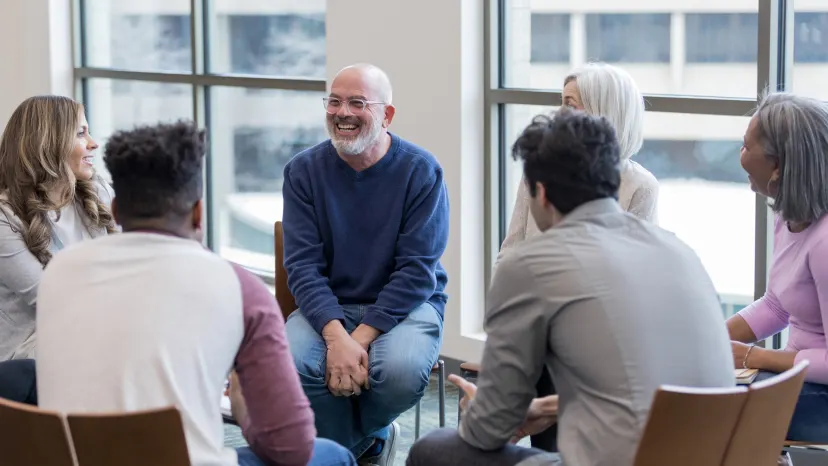Living with cancer
Introduction
Receiving a cancer diagnosis changes everything. Whether it's you or someone you love, you are suddenly confronted with physical, emotional, and financial challenges, plus the need for caregiving.
Here, you'll find a wealth of helpful information all in one place.
Get the facts about living with cancer and find answers to your questions about seeking the latest treatments, finding caregiver and family support, and making healthy lifestyle changes. You’ll also learn about the importance of using cancer resources and other information that can help you better navigate life with cancer.
It's important to talk to your healthcare provider (HCP) about the challenges you're facing. They can point you toward valuable resources for living life to the fullest with cancer.
Cancer resources
Finding out that you or someone you love has cancer can feel overwhelming. Luckily, there are a number of resources and organizations that offer help. From social workers, counselors, and local support groups, to nonprofit organizations and government agencies, know where to get help as you navigate the physical, emotional, and financial challenges of cancer.
Caregiver support
Becoming a caregiver to someone you love can be rewarding, but it can also be physically and emotionally demanding. You don't have to do it alone. Learn how taking time to care for yourself and seeking help while you’re a caregiver not only keeps you healthier and happier, but also makes you a better caregiver.
Family support
Whether you’re a parent, grandparent, spouse, child, or sibling, everybody deals with a loved one's cancer differently. Learn how keeping an open and honest line of communication can bring families together during a difficult time.
Healthy lifestyle
Living with cancer may mean embracing new lifestyle habits that keep you on the path to wellness. See how things like healthier eating, exercise, and other changes may help you live life to the fullest before, during, and after treatment.







